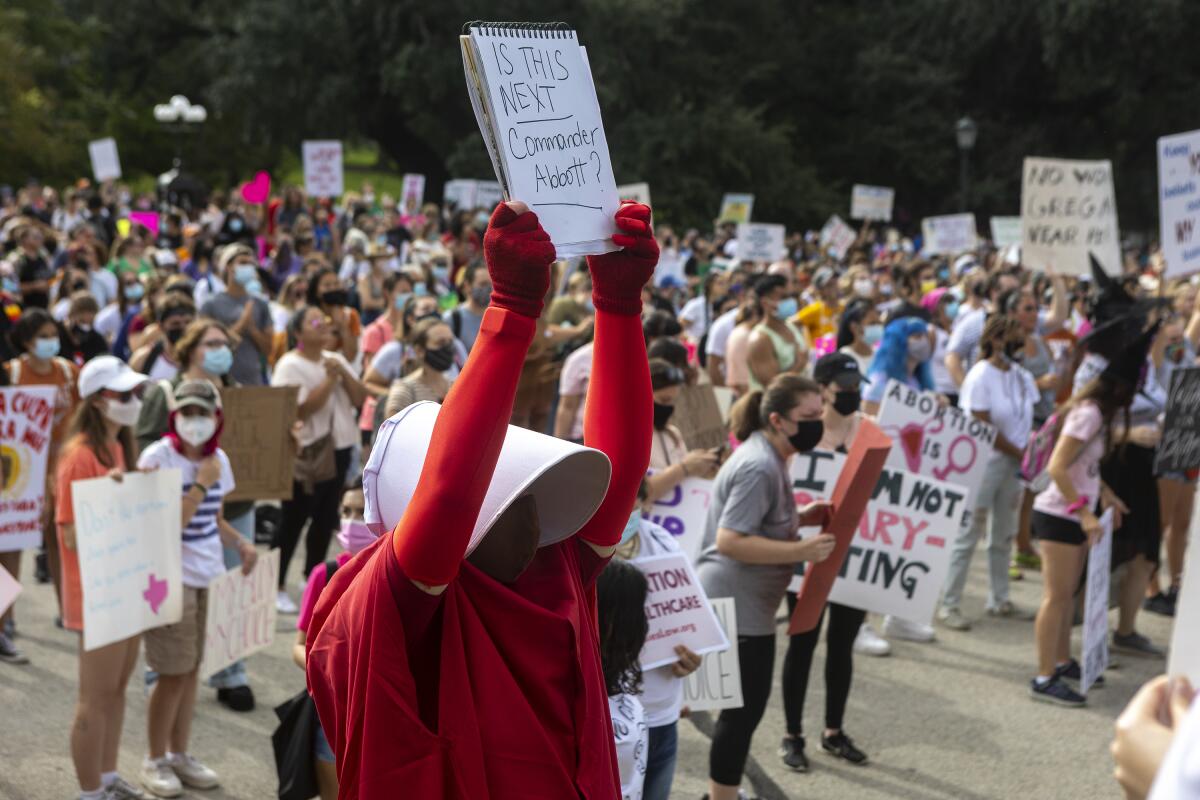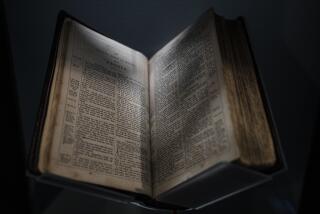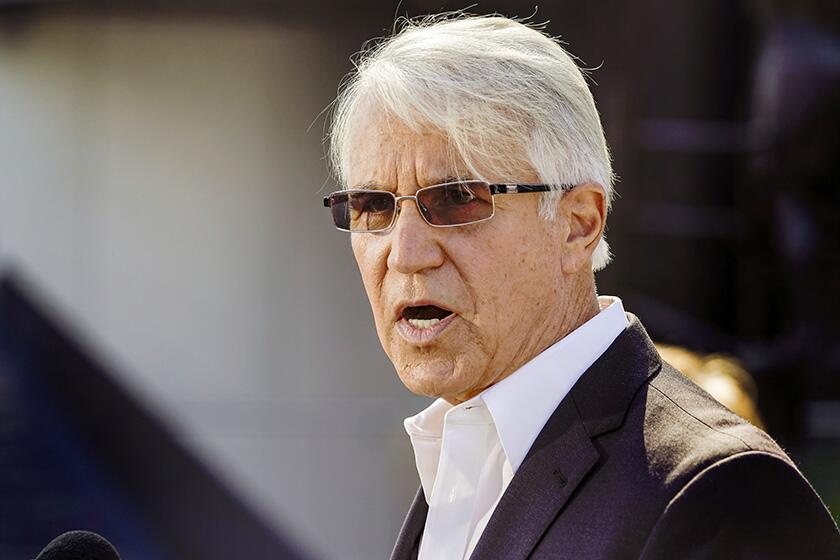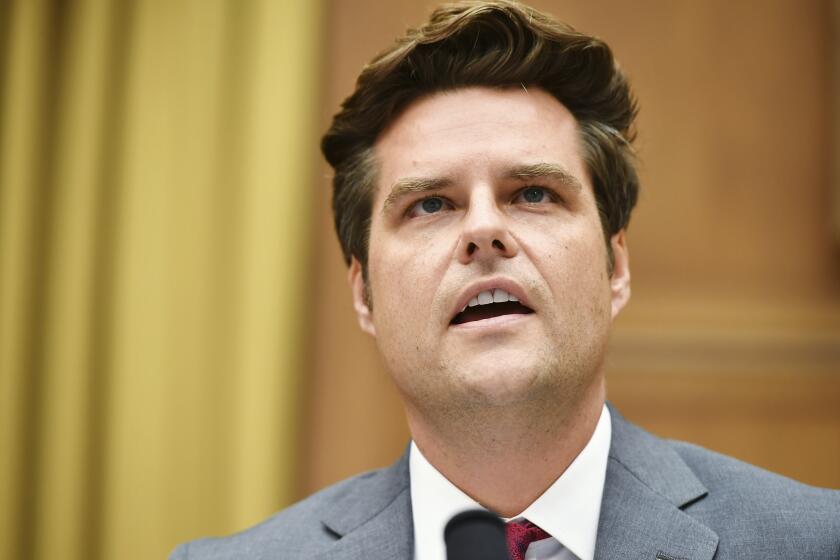Column: There’s good reason we built a wall between church and state

King James I of England gets most of the credit for turning the Bible into an all-time bestseller, but remember it was King Henry VIII who authorized the first English translation.
The “who” of a story is key to understanding the “why.”
In this case, King Henry wanted his marriage to Catherine of Aragon annulled. The Catholic Church refused, and so King Henry did what any sensible authoritarian would do in that situation: break from the church and make his own religion. Complete with its own Bible.
Opinion Columnist
LZ Granderson
LZ Granderson writes about culture, politics, sports and navigating life in America.
That story is an important part of ours. We might like to pretend it’s not, because questioning the making of the Bible makes a lot of Christians uncomfortable. But given recent court rulings regarding religious freedom, the who and the why of the Bible are important.
When Parliament passed the Act of Supremacy in 1534, it made King Henry the supreme head of the Church of England. He used the biblical translation he ordered as part of the justification for the split. And it was allowed even though members of Parliament knew the king just wanted to leave his wife.
So, if you find yourself wondering why the forefathers of the United States wanted separation of church and state, look no further than the King James Bible.
That version used translations from the version King Henry authorized, which used translations from a Catholic friar by the name of William Tyndale. The same William Tyndale whom King Henry had executed. Yes, girl, the same King Henry. Technically Tyndale’s crime was heresy, but he also publicly criticized King Henry for trying to have the Catholic Church annul his first marriage. Tyndale was arrested, hanged and burned, which seems a bit much for just heresy, but to each their own.
Anyway, the forefathers separated church and state because they understood what can happen to a society when the two blur.
King Henry — whom the pope anointed “defender of faith” back when he was a Catholic — created his own religion so he could divorce his first wife. And because King Henry was installed as the supreme head of the Church of England — thus marrying church and state — speaking out against King Henry was akin to speaking out against God.
And who wants to pick a fight with God?
When we talk about the founding of the United States, it is common practice to paint the colonizers as religious refugees fleeing persecution. We tend to omit the economic opportunities that awaited the religious refugees as well. To fully capitalize on those opportunities, the founders used religion to justify the transatlantic slave trade and westward expansion. Just as King Henry used religion to get what he wanted, many who looked to escape English rule used religion for their own ends. The only difference being they were careful to keep religion in the realm of politics and culture, not a part of the government.
For all their flaws, the framers were onto something when they wrote the Bill of Rights and made it their first priority to separate church and state — even before protecting free speech and other liberties.
For those who didn’t hear it the first time, President Jefferson reiterated the point in 1802 in a letter to a religious organization in Connecticut: “the whole American people which declared that their legislature should ‘make no law respecting an establishment of religion, or prohibiting the free exercise thereof’ thus building a wall of separation between Church and State.”
That was then.
Today, the crossroads at which we now find ourselves is characterized as Republicans vs. Democrats, but it’s actually more significant than that. We’re deciding if Jefferson’s words still matter now. Political parties come and go but the Constitution is supposed to have better footing than that. However, there are elected officials who are now suggesting Jefferson’s words matter less. That the very first utterances from the Bill of Rights have lost some punch. And while scrolling through the memes that mock such rhetoric is amusing, these are still the words of elected officials.
They have supporters. They can write laws and shape culture. They can even appoint a judge or two. And while
memes may mock their rhetoric, those are still the words of elected officials.
Consider Jonathan F. Mitchell, the former solicitor general of Texas. He helped dream up the state’s dystopian law that incentivizes individuals to sue anyone who facilitates abortion access. It sailed past the Supreme Court, thanks to Trump appointees.
Mitchell is back in the headlines now with another case that invites judges to trash the 1st Amendment, and he found a taker: This week a federal judge in Texas ruled that requiring insurance companies to cover medication that protects people from HIV violates religious rights.
So much for that wall.
Look, I don’t hate religion. In fact, I worked as a youth minister for years before attending graduate school. Took kids to church camp, the whole nine. Some of the best days of my life. I recognize that separation of church and state was never about limiting God, but about limiting what men were able to do in his name. Kings and presidents shouldn’t be blurred with God. Kings and presidents should never forget that they are accountable to Congresses and parliaments.
After King Henry’s second wife failed to produce a male heir, the supreme head of the Church of England had their marriage annulled — and had her executed — so he could marry a third woman. He faced no consequences. This king was above the law and above the church.
And folks wonder why separation of church and state is a thing.
More to Read
A cure for the common opinion
Get thought-provoking perspectives with our weekly newsletter.
You may occasionally receive promotional content from the Los Angeles Times.












